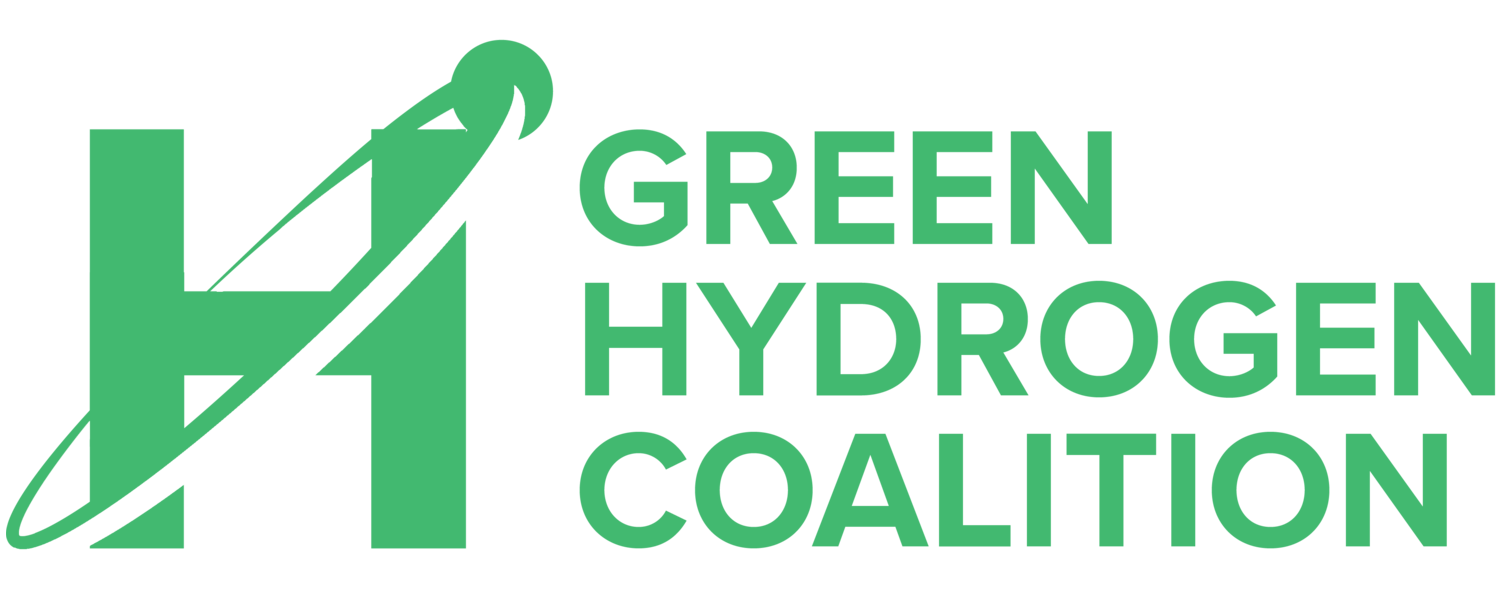Blog | Catalyzing Leadership, Partnership, and Collaboration at GHC Fall Conference
Catalyzing Leadership, Partnership, and Collaboration at GHC Fall Conference
By Janice Lin, Founder and President
The Green Hydrogen Coalition just wrapped up its 3rd annual Fall Conference, where we brought together policymakers, hydrogen off takers, industry leaders, utilities, investors, developers, and NGOs to accelerate progress for the green hydrogen (GH) market and infrastructure development across the U.S.
Not only did our two-day event serve as a great platform to reconnect and update each other on progress toward realizing and accelerating our joint vision of a GH economy, it also helped drive a shared understanding of what policies and incentive structures are needed to make this vision a reality.
While the platform hosted a series of rich conversations and deep dives into current market and policy dynamics for GH, we believe a few high-level takeaways are especially informative and wish to relay them here.
For inspiration and a roadmap, we only need to look to Europe, where industry players have been working hand-in-hand with state governments to create a vertically integrated supply chain, and HyDeal Ambition, a hydrogen hub servicing Spain, France, and Germany, is moving forward rapidly. These developments are only accelerating as the price of imported natural gas — a crucial feedstock for residential and industrial heat — hit all-time highs in recent weeks, underlining the necessity of identifying new sources of energy to protect Europe’s national security and strengthen its industrial competitiveness.
The German government, for instance, seeks to transition away from coal and natural gas toward GH, with all dispatchable energy to be hydrogen-sourced, HyDeal Ambition Founder and GHC Board Member Thierry LePercq told attendees. At a price of 1.50 euros per kilogram (kg), GH2 begins to out-compete fossil fuels — even without a price on carbon. This price point will become increasingly attainable as the cost of renewable generation like wind and solar power, which provide the feedstock energy to create GH, and for electrolyzers, which break water into hydrogen gas and oxygen for processing, continues to decline, according to U.S. Department of Energy and BloombergNEF analyses presented to attendees.
The European case proves hub development offers a path forward to accelerate progress. Efforts are being made in the U.S. to replicate the European example by creating the proper policy and incentive structures and by harnessing the power of the free market. The recently passed U.S. federal infrastructure bill earmarked:
$8 bln to develop regional clean hydrogen hubs;
$1 bln set aside for efforts to decrease the cost of electrolytic hydrogen production;
$500 million authorized for a clean hydrogen manufacturing and recycling program to support domestic supply chain development, and
A grant program to support EV and fuel cell EV infrastructure.
Additional funding continues to be advanced in negotiations on the Biden Administration’s Build Back Better legislation, including an “up to” $3 (2.65 euro)/kg production tax credit, and the DOE is seeking added support for its hydrogen Earthshot program, according to DOE Deputy Secretary David Turk, another GHC Fall Conference speaker. Opportunities for regional and national multi-sector decarbonization are real, and the federal government is moving with speed and purpose to orient and accelerate market formation in this direction.
Looking forward, what additional policy signals will spur GH infrastructure development and offtake?
Establishing an emissions certification and tracking framework that enables cross-sector accounting for GH emissions benefits and eligibility toward meeting specific local, state, and national carbon reduction renewable goals energy targets.
Reducing the challenges of defining hydrogen by colors through developing an objective criterion based on the carbon intensity of different hydrogen production pathways.
Issuing a clear regulatory roadmap that includes access to wholesale green electricity, clear rules for renewable energy access, permitting, and codes and standards.
Setting ambitious decarbonization targets with the understanding that GH can deliver grid reliability without using fossil fuels.
Accelerating pipeline injection as a way to gradually build out GH infrastructure.
The final takeaway is that bold leadership, partnership, and collaboration are key to our shared vision. Access to mass-scale, low-cost GH is the enabler to accelerating progress in decarbonization, pollution reduction, job creation, and economic growth. While well-designed policy advancements and incentive structures can support the buildout of GH infrastructure, end users also need to make investments. Private capital is poised and ready to invest. What is needed is policy, regulatory, and commercial alignment on GH’s value proposition.
This partnership must include all stakeholder groups, including environmental justice, labor organizations, and the representatives of underserved communities who far too often are co-located near highly pollutive industrial operations. At its foundation, the drive to a GH economy is a recognition that we need to create a clean energy economy that works for everyone. The HyDeal LA initiative creating a GH hub that brings together the entire value chain across the LA Basin, including production, transport, storage, and multi-sectoral (e.g., energy, transportation, industrial, maritime, aviation) aggregated offtake, while creating sustainable, family-sustaining jobs, is an embodiment of this vision and is off to a fast start since its launch earlier this year.
While these takeaways represent only a portion of the insights discussed at the GHC Fall Conference, they point to the tremendous energy and forward progress being made toward creating a truly innovative, clean GH economy. If you are interested in learning more about the GHC, please contact GHC Membership Manager Taylor Page at t.page@strategen.com.

